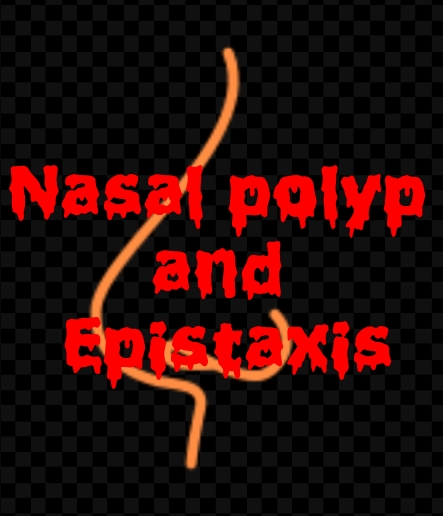Chelidonium Majus Homoeopathic Drug | Homoeopathic Drug Shots
Chelidonium majus is commonly known as greater celandine. It is native to Europe and western Asia and introduced widely in North America.
COMMON NAME: CELANDINE

KINGDOM: PLANT KINGDOM
FAMILY: PAPAVERACEAE
PROVED BY: Dr. HAHNEMANN
CONSTITUTION
- Persons of light complexion, blondes; thin, spare, irritable; subject to hepatic, gastric and abdominal complains (Pod.); every age, sex and temperament.
CLINICAL INDICATIONS
- A prominent liver remedy, covering many of the direct reflex symptoms of diseased conditions of that organ.
- The jaundiced skin, and especially the constant pain under inferior angle of right scapula, are certain indications.
- Paralytic drawing and lameness in single parts.
- The great general lethargy and indisposition to make any effort is also marked.
- Ailments brought on or renewed by change of weather.
- Serous effusions. Hydrocele. Bilious complication during gestation.
HEAD
- Icy coldness of occiput from the nape of neck; feels heavy as lead.
- Heavy, lethargic; drowsiness very marked, with general numbness; vertigo, associated with hepatic disturbance.
- Inclination to fall forward.
- Right-sided headache down behind ears and shoulder-blade.
- Neuralgia over right eye, right cheek-bone and right ear, with excessive lachrymation, preceded by pain in liver.
NOSE
- Flapping of alae nasi. [Lyc.]
- Eyes
- Dirty yellow color of whites.
- Sore sensation on looking up.
- Tears fairly gush out.
- Orbital neuralgia of right eye, with profuse lachrymation; pupils contracted, relieved by pressure.
FACE
- Yellow; worse nose and cheeks.
- Wilted skin.
STOMACH
- Tongue yellow, with imprint of teeth; large and flabby. [Merc.; Hyd.]
- Taste bitter, pasty.
Bad odor from mouth. - Prefers hot food and drink.
- Nausea, vomiting; better, very hot water.
- Pain through stomach to back and right shoulder-blade.
- Eating relieves temporarily, especially when accompanied with hepatic symptoms.
ABDOMEN
- Jaundice due to hepatic and gall-bladder obstruction.
- Gall-colic.
- Fermentation and sluggish bowels.
- Constriction across, as by a string.
- Liver enlarged.
- [Berberis.]
URINE
- Profuse, foaming, yellow urine, like beer. [Chenop.]
- dark, turbid.
STOOL
- Constipation; stools hard, round balls, like sheep’s dung, bright yellow, pasty; clay-colored, stools float in water; alternation of diarrhoea and constipation.
- Burning and itching of anus. [Ratanh.; Sulph.]
FEMALE
- Menses too late and too profuse.
RESPIRATORY
- Very quick and short inspirations; pain on deep inspiration.
- Short, exhausting cough; sensation of dust not relieved by cough.
- Whooping-cough; spasmodic cough; loose, rattling; expectoration difficult.
- Pain in right side of chest and shoulder, with embarrassed respiration.
- Small lumps of mucus fly from mouth when coughing.
- Hoarse in afternoon.
- Constriction of chest.
BACK
- Pain in nape.
- Stiff neck, head drawn to left.
- Fixed pain under inner and lower angle of right scapula.
- Pain at lower angle of left scapula.
EXTREMITIES
- Pain in arms, shoulders, hands, tips of fingers.
- Icy coldness of tips of fingers; wrists sore, tearing in metacarpal bones.
- Whole flesh sore to touch.
- Rheumatic pain in hips and thighs; intolerable pains in heels, as if pinched by too narrow a shoe; worse, right.
- Feels paralyzed.
- Paresis of the lower limbs with rigidity of muscles.
SKIN
- Dry heat of skin; itches, yellow.
- Painful red pimples and pustules.
- Old, spreading, offensive ulcers.
- Wilted skin.
- Sallow, cold, clammy.
MODALITIES
- Worse, right side, motion, touch, change of weather, very early in morning.
- Better, after dinner, from pressure.
RELATIONSHIP
- (Spasm of smooth muscle everywhere, intestinal colic, uterine colic, bronchial spasm, tachycardia, etc.)
- Boldo – Boldoa fragrans – (Bladder atony; cholecystitis and biliary calculus. Bitter taste, no appetite; constipation, hypochondriasis languor, congestion of liver; burning weight in liver and stomach. Painful hepatic diseases. Disturbed liver following malaria.)
- Elemuy Gauteria – (Stones in kidneys and bladder; grain doses of powdered bark in water or 5 drops of tincture. Pellagra).
- often completes its work.
- Antidote Chamom.
- Compare : Nux; Sulph.; Bry.; Lyc.; Opium; Podophyl.; Sanguin.; Ars.
DOSE
- Tincture and lower attenuations.







